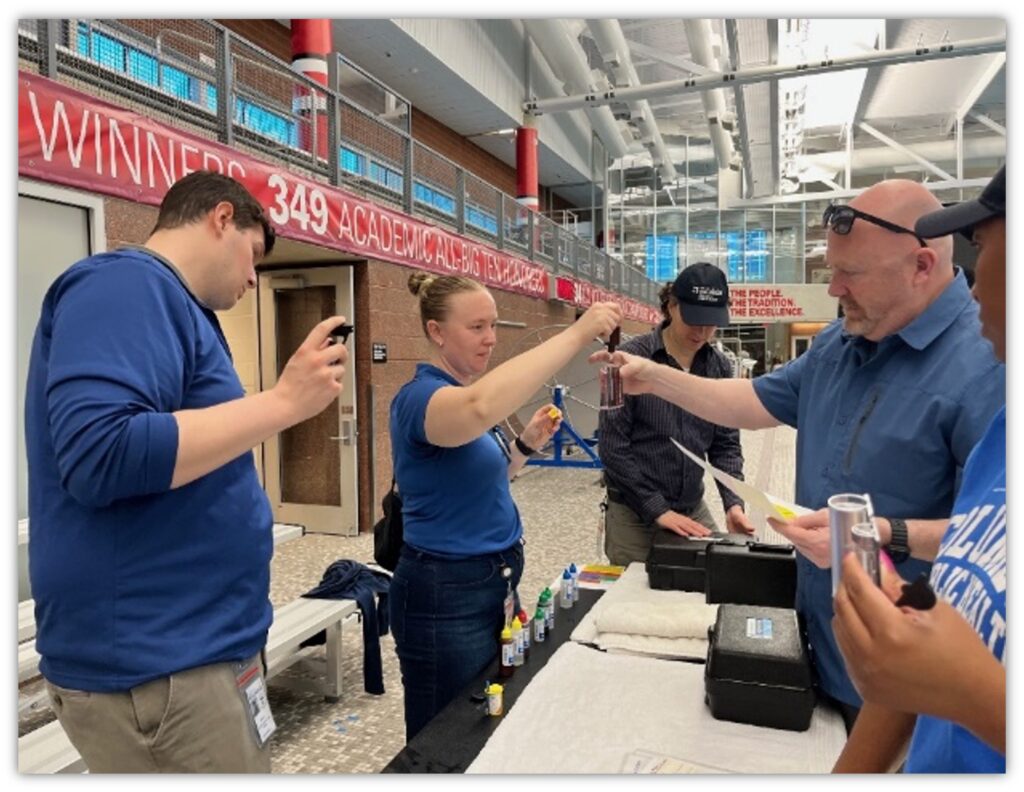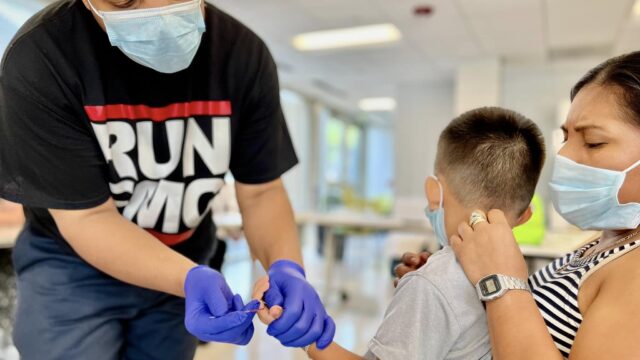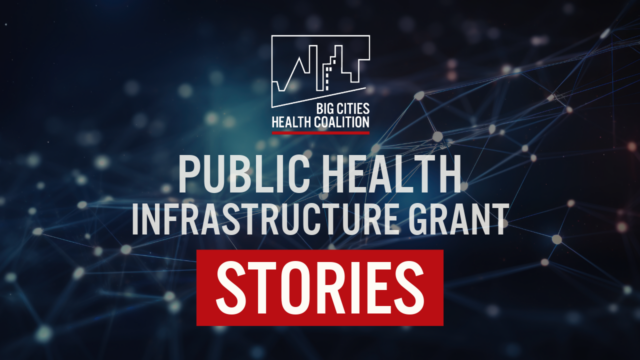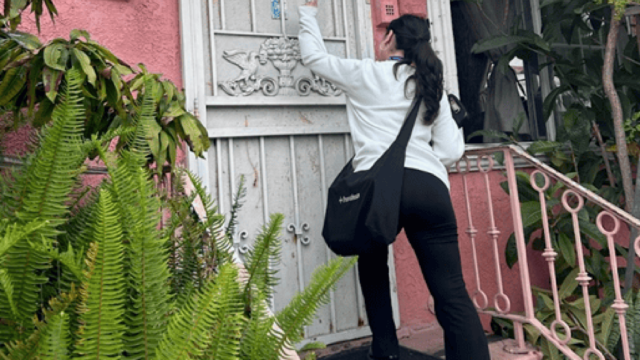Frontline Blog
How Columbus uses CDC infrastructure funds to transform environmental health, keep communities safer
July 2025

Thanks to CDC’s Public Health Infrastructure Grant (PHIG), Columbus Public Health has taken important steps to modernize and elevate the unsung field of environmental health.
Environmental health rarely makes headlines, but it quietly and profoundly shapes the health and safety of communities every single day. From ensuring your favorite restaurant stores food properly to checking that your local public pool has the right chemical balance, environmental health professionals work to prevent illness and injury before they happen.
By investing PHIG funding in workforce development and restructuring how environmental health services are delivered, Columbus Public Health is protecting more residents and responding more efficiently to seasonal demands.
Making every inspector a generalist
Three years ago, the Columbus environmental health team was highly specialized. Staff typically focused on a single program area – such as food safety, swimming pools, solid waste, or housing – and were rarely cross-trained. But that structure led to burnout and inefficiencies. If a pool inspector was out sick, no one else could step in. And with more than 800 public pools operating seasonally, that left a narrow window to complete inspections.
Now, thanks in part to PHIG funds, Columbus Public Health has implemented a new cross-training program that gives all environmental health specialists a broader foundation in core disciplines. The results are striking: during the first two weeks of June 2023 alone, staff completed 230 pool inspections – a 178% increase over the previous year. Thirty of those pools were closed immediately due to urgent safety hazards that might otherwise have been missed. What used to take eight weeks now takes two. That’s not just a faster process; it’s also fewer people exposed to risk.

Training that turns science into safety
Environmental health work requires serious scientific training, far more than clipboards and checklists. Inspectors need to understand how bacteria grow, how chemicals react, and how to translate scientific concepts into simple actions that prevent harm. Thanks to PHIG funding, Columbus Public health enrolled its entire environmental health staff in a rigorous, self-paced online course that prepares them for the national credentialing exam. The results speak for themselves: 88% of staff have passed the exam on their first try, and the team recently won a national award for their education program.
With this foundational knowledge, inspectors do more than enforce codes. They use calibrated light meters and thermometers to diagnose problems. They explain why chicken can’t be stored above lettuce – not just that it violates code, but how it can make people sick. They’re educators and partners, not just regulators. And that approach builds trust.
A model for the nation
Columbus Public Health’s efforts are already paying off. Turnover in the environmental health division has dropped by more than 130%, from 24% in 2022 to just 10% in 2023. Staff are more satisfied, more skilled, and more capable of stepping into a wide range of roles. With flexible scheduling and field-based work, productivity is up and morale is high. And thanks to PHIG, staff were able to attend last year’s National Environmental Health Association conference, where they made connections with peers across the country and shared best practices.
These are the kinds of behind-the-scenes improvements that make a real difference in people’s lives. But they require consistent investment. Luke Jacobs, director of Columbus’ environmental health team, puts it simply: “If we didn’t have PHIG dollars, we probably couldn’t have done this course and made these other changes. It’s made us a better unit and our community safer.”
Environmental health work may be unsung, but it’s essential. With support from CDC’s PHIG program, local health departments like Columbus are showing what’s possible.



